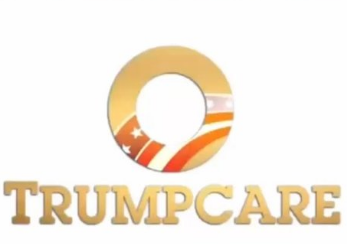The health care news from Washington DC was disheartening this week. Key Republicans are bashing the president for his lack of understanding of basic health care concepts. One Republican Senator reportedly called the president “clueless” after a one-on-one meeting. Meanwhile the president touts himself as a health care policy expert. For the est of us, we simply want to know how these proposed changes affect us. That will require a recalculation of estimates under any business or personal financial plans.
From my small corner of perspective on this subject – consumer behavior in reaction to health care policy – I see few signs that policymakers understand the impact on consumers and their likely responses to the changes. With more than 30 years work involving communications with tens of thousands of health care consumers, I think I can reasonable predict how people will react to health care law.
Health insurance companies as busy creating new insurance products since the surprise election results last fall. I agree with the underlying premise that we will see passage of legislation that – at the least – reduces the tax penalties for not complying with health care law.
Beyond that, it is important to consider how the federal policy change affects people and their financial strategies. We can expect the following consequences:
Higher health care prices. Neither the former nor proposed former measures address the core of our problem: that we spent too much on health care relative to our other earnings and resources. This trend will continue to cause stress on working-class people.
Lower premium subsidies. Those who rely on premium subsidies will have a harder time paying for health insurance coverage after 2019 when these subsidies shrink. The Congressional Budget Office predicts that the total number of people without health insurance will soar to tens of millions will drop coverage.
Policy deductibles and co-payments will be higher. The trend of shifting costs from insurance to individuals will continue. Health care costs are second only to housing costs. In the final years of life our health care costs are likely our largest expense.
Scaling back of employer-provided health benefits. Employer-provided health benefits are required of larger employers under current law and this coverage is required to cover certain minimum medical expenses. Those requirements are cut under the Republican proposal so we can expect some employers to cut health benefits.
Lower tax on investment income. The 3.8% tax on investment income would be repealed. The large majority of the population has minimal taxable investment income, so this change benefits a relative few of the most affluent people.
HSA and FSA limits would be lifted. The ability to use Health Savings Accounts and Flexible Spending Accounts is expanded under the reform proposals. This benefit benefits those who have income in excess of other living costs that can be reallocated to higher anticipated medical costs.
Elimination of individual mandate tax penalty. Without the requirement to carry insurance, some will prefer to pay for less coverage. Policies that cover only smaller more common medical expenses, called “mini-med” or “skinny plans” will be more popular.
In summary, the changes benefit the wealthy but will cause additional financial stress on those who live paycheck to paycheck.
I strongly recommend a review of financial plans and projected cash flow before the new health care changes become law.
[contact-form-7 id=”4556″ title=”Boilerplate Contact”]


Leave a Reply